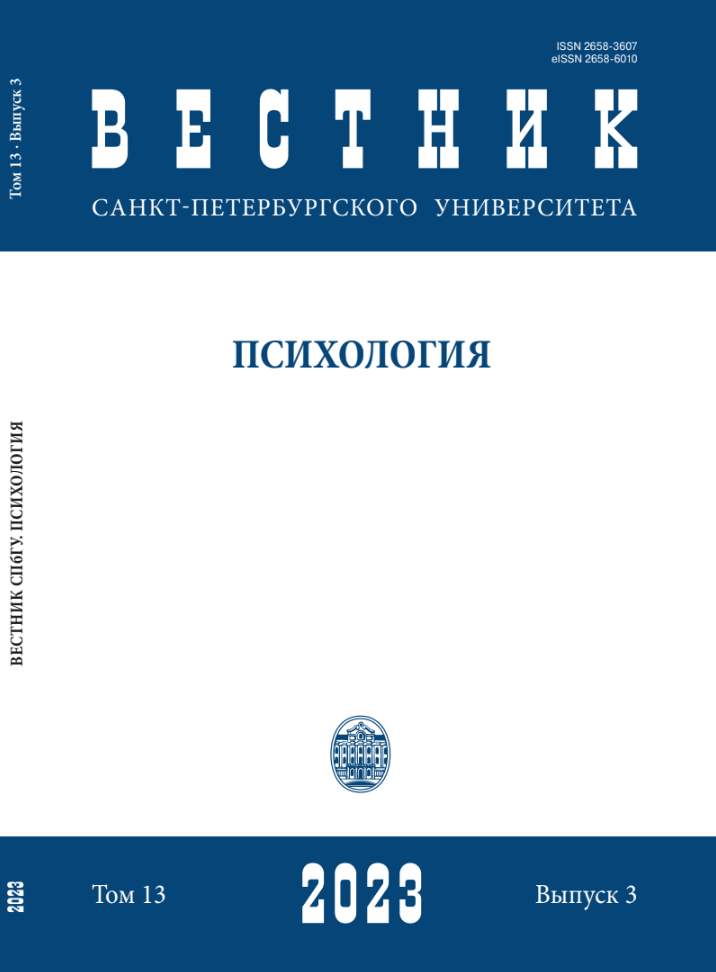Information identity and perception of information as a new digital everyday life
DOI:
https://doi.org/10.21638/spbu16.2023.304Abstract
The psychology of everyday life has been studied for a long time and has accumulated a lot of new data, in contrast to its specificity in the context of a digital society as a digital everyday life. Objective is to theoretically analyze the difficulties that arise in digital everyday life and empirically explore new trends in the development of information identity and information perception. The first study was devoted to the study of the leading way of perceiving and processing information and its relationship with the level of information awareness and the style of information identity in two age groups — young people from 16 to 27 years old (N = 100) and middle-aged people from 27 to 50 years old (N = 80). The second study was devoted to the relationship between the style of information identity, and the scale of adherence and scale of satisfaction with life in the information society. The respondents in this case were young people, students of Moscow universities aged from 17 to 25 years (N = 100). Obtained materials in recent studies gave the opportunity to identify new trends in the ways of perception and processing of information, as well as in information identity styles in different age groups. Information awareness in the older age group is much higher than in the group of young people. At the same time, the digital way of perceiving and processing information in both age groups is approximately equal and exceeds the percentage of people with other leading modalities. In the same way, the information style of identity is much more typical for people of different ages
Keywords:
digital society, digital everyday life, information awareness, way of perceiving information, information identity
Downloads
References
References
Downloads
Published
How to Cite
Issue
Section
License
Articles of "Vestnik of Saint Petersburg University. Psychology" are open access distributed under the terms of the License Agreement with Saint Petersburg State University, which permits to the authors unrestricted distribution and self-archiving free of charge.




